Facilitation and Social Learning: A Nursing Perspective (SNPG960)
VerifiedAdded on 2022/10/19
|5
|889
|466
Report
AI Summary
This report delves into the concepts of social learning and facilitation within the context of nursing practice. It begins by defining social learning as the acquisition of new information through environmental interactions, and facilitation as guiding individuals towards agreed-upon outcomes through collaborative processes. The report then explores Albert Bandura's social learning theory, outlining key concepts such as attention, retention, reproduction, and motivation. It also details the key concepts of the Facilitation Model, including directive, exploratory, delegating, participative, sharing, interpretive, and evaluative approaches. The report incorporates an annotated bibliography, referencing key works by Akers & Jennings, Albert, Gashi Tresi & Mihelič, Hunter & Bailey, and Taylor to support the discussion. It also highlights the importance of self-efficacy and leader-member exchange in relation to job crafting and work-self facilitation within a professional context. The report aims to provide a comprehensive understanding of these theories and their practical applications in nursing and healthcare settings.
1 out of 5
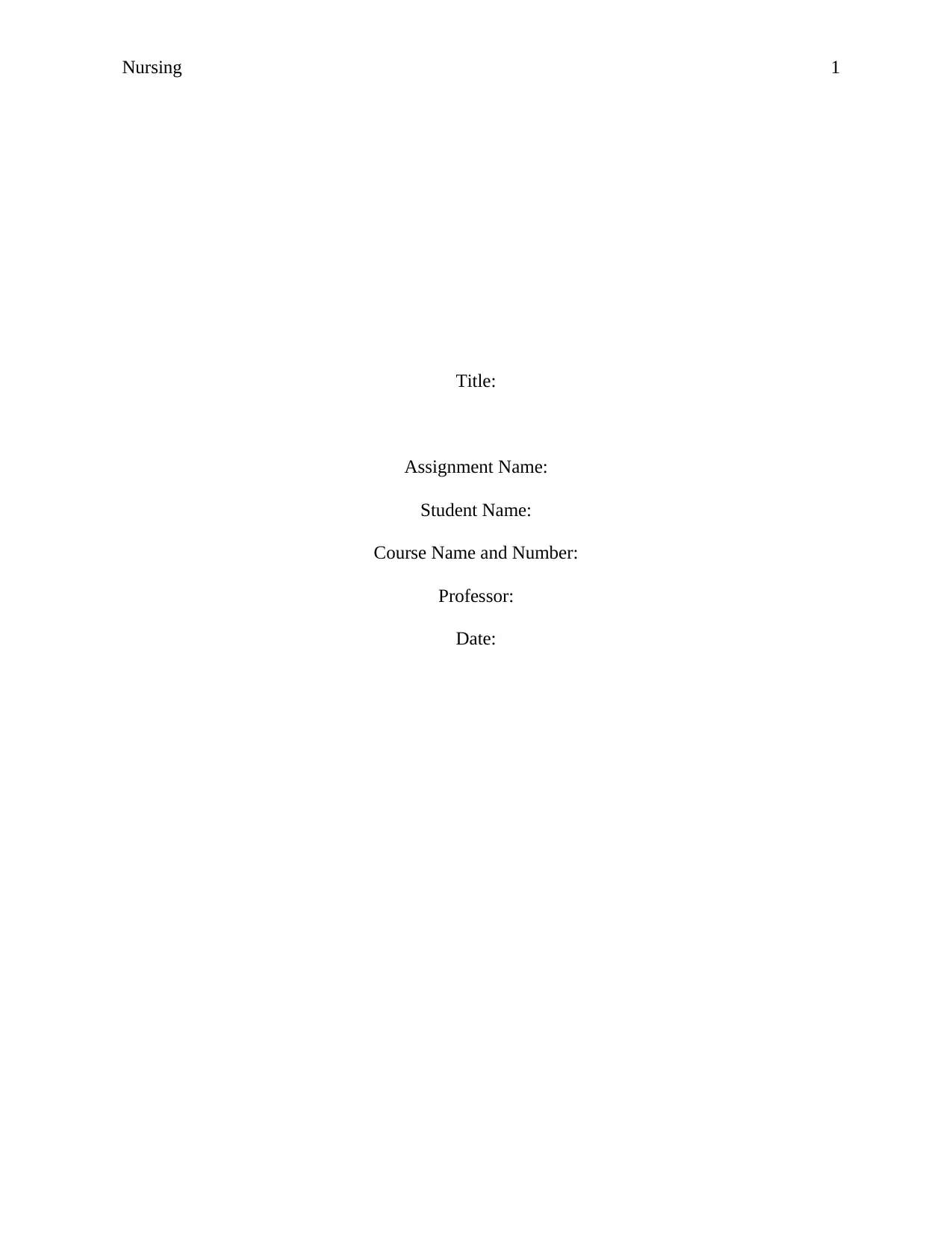
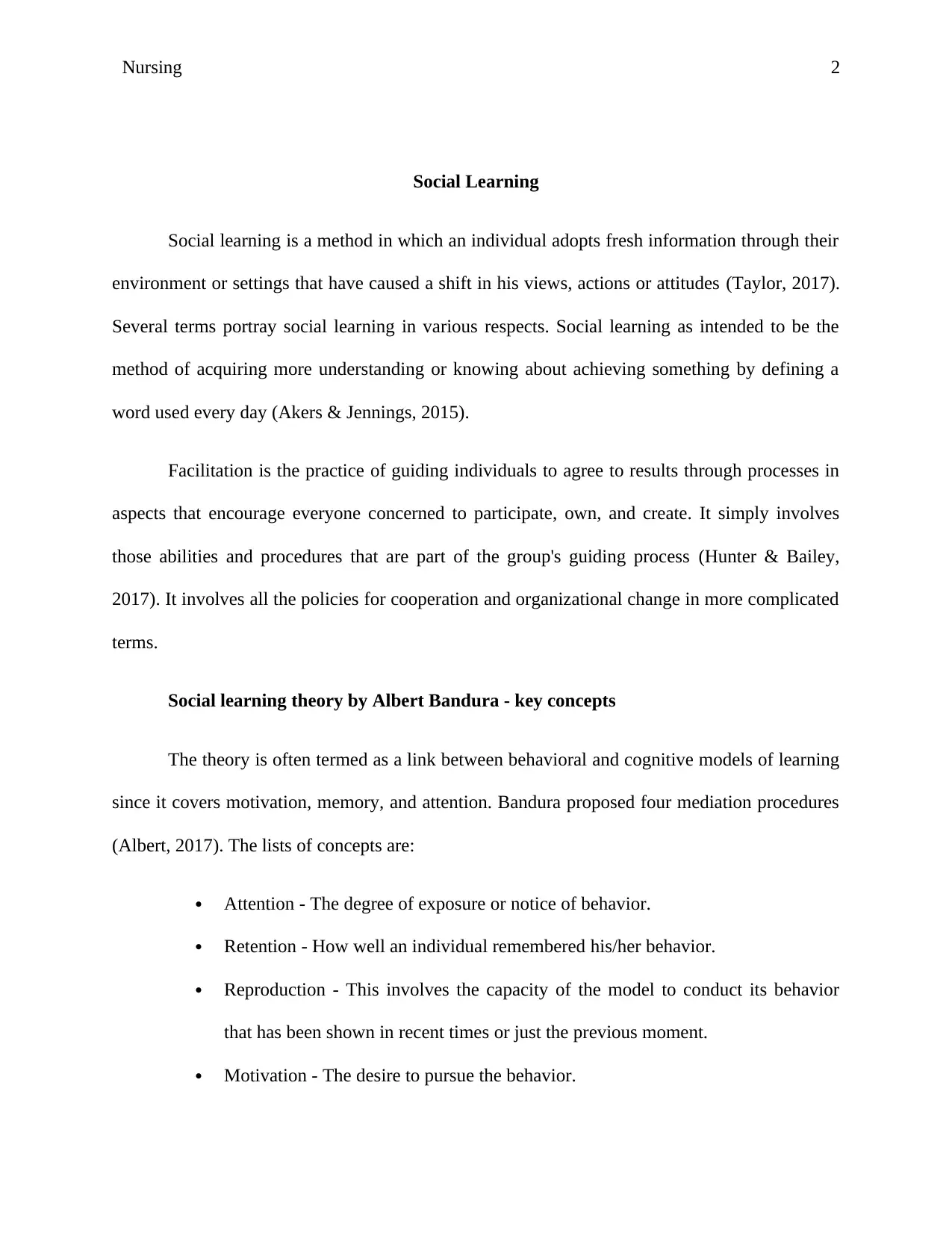
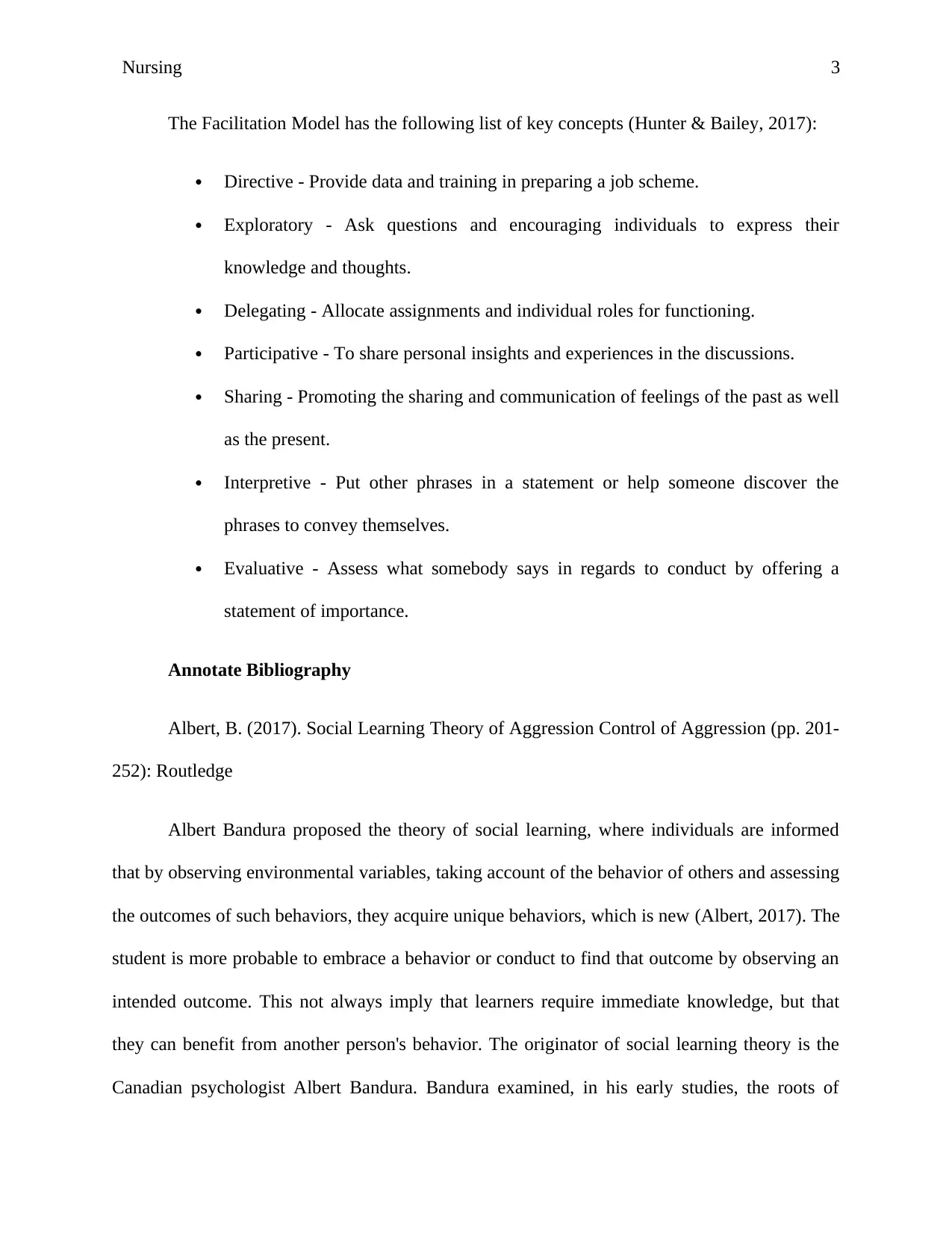

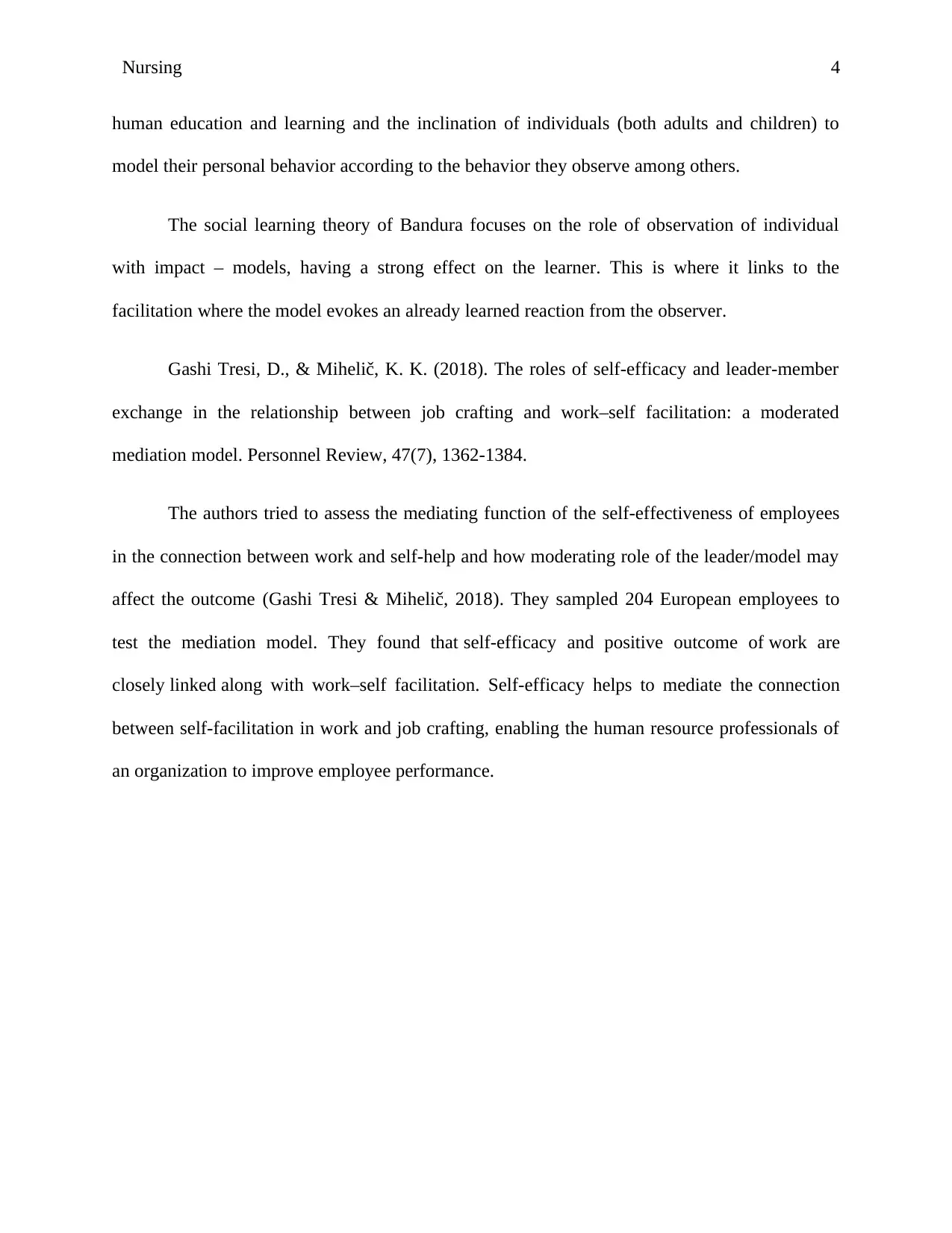
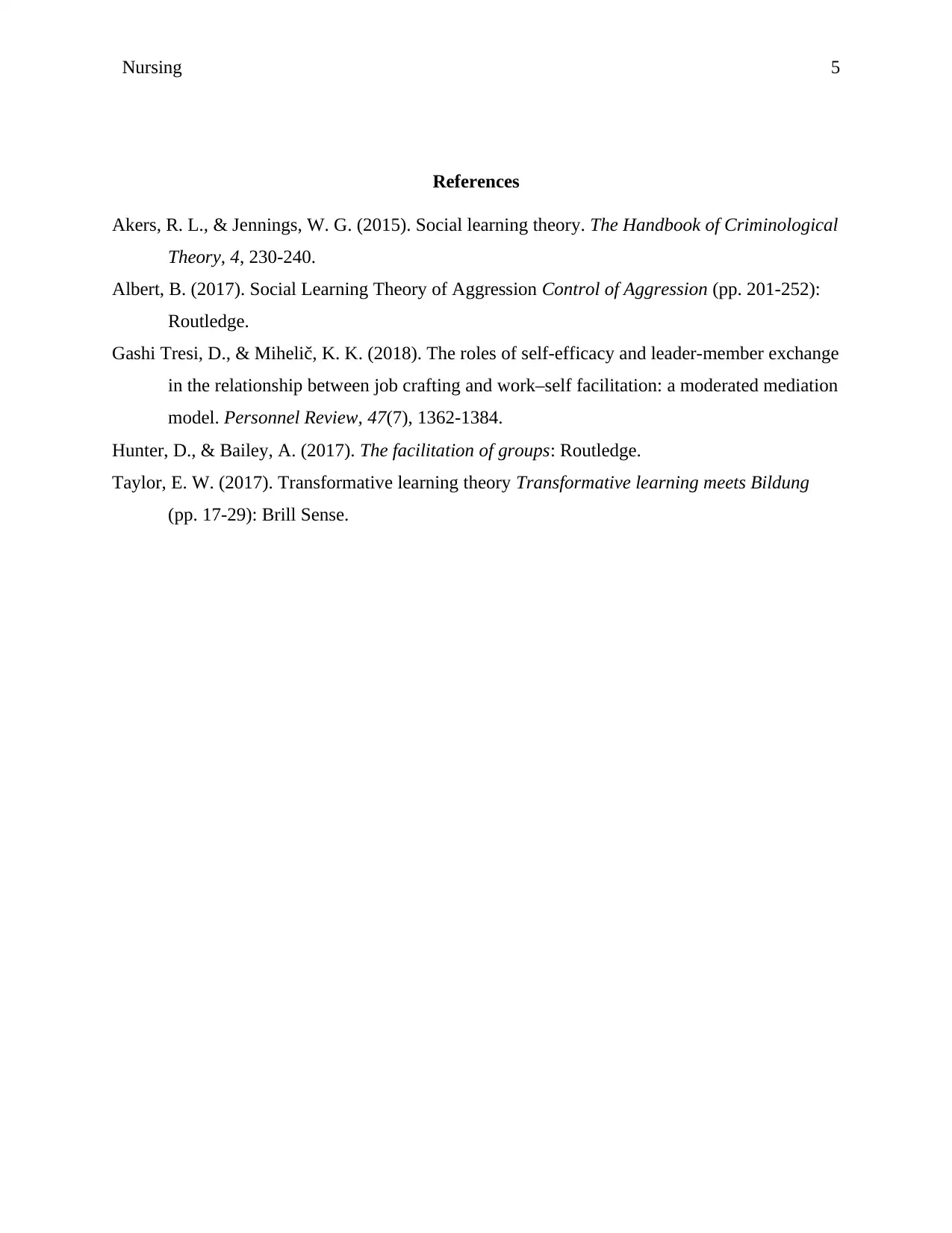






![[object Object]](/_next/static/media/star-bottom.7253800d.svg)